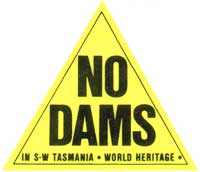Category: politics
-
Fibreculture and Elections
The question of governance has come up recently on a list that I contribute to called fibreculture. There is (perhaps predictably) a reluctance by the present moderators (in which there are 14) to embrace a more representative democratic model. This is for a number of reasons; most notably because the list comes from the dot
-
Protest and Online Activism
M/C Reviews Here is a review by Guy Redden of a recent book about Cyberactivism. Cyberactivism: Online Activism in Theory and Practice, Martha McCaughey and Michael D. Ayers (eds.). Routledge, New York and London, 2003, 310 pp. inc. index. ISBN 0-415-94319-1 (hardback), ISBN 0-415-94320-5 (paperback). Trying to ascertain the social significance of new media is
-
Distributed Networks
A “distributed network” is a term that is used to describe the construction of an art work or the construction of a narrative across a ‘distributed network’ such as the Internet (I have yet to discover what this might mean for an historian). There is an excellent paper online written by Dr Jill Walker of
-

A fine example of Non-Parliamentary Political Communication
From the Burnie Advocate, Tasmania, Australia In response to the Advocate’s editorial (15 January 2004) may I send my hearty support to those brave and courageous young activists in Sydney who against all odds, risked their own physical (and legal) safety to send a message to the broader Australian public about what is happening in
-
Adam Thrilwell’s Politics
Adam Thrilwell’s novel Politics is as energetic as it is neurotic as English as it is universal. The universal themes primarily surround the sex scenes which are generational in an occasional hackneyed fashion, but rescued by a biting insight and honesty (There is a lot of energy in honesty and it is always better to
